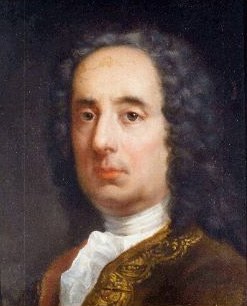Antonio Maria Bononcini on:
[Wikipedia]
[Google]
[Amazon]
 Antonio Maria Bononcini (18 June 1677 – 8 July 1726) was an Italian
Antonio Maria Bononcini (18 June 1677 – 8 July 1726) was an Italian
"Bononcini, Antonio Maria"
in ''The Harvard Biographical Dictionary of Music'', Harvard University Press, 1996, p. 92. 1677 births 1726 deaths People from the Duchy of Modena and Reggio Italian Baroque composers Italian opera composers Italian male opera composers Musicians from Modena 18th-century Italian composers 18th-century Italian male musicians {{Italy-composer-stub
 Antonio Maria Bononcini (18 June 1677 – 8 July 1726) was an Italian
Antonio Maria Bononcini (18 June 1677 – 8 July 1726) was an Italian cellist
The violoncello ( , ), commonly abbreviated as cello ( ), is a middle pitched bowed (sometimes pizzicato, plucked and occasionally col legno, hit) string instrument of the violin family. Its four strings are usually intonation (music), tuned i ...
and composer, the younger brother of the better-known Giovanni Bononcini
Giovanni Bononcini (or Buononcini) (18 July 1670 – 9 July 1747) (sometimes cited also as Giovanni Battista Bononcini) was an Italian Baroque composer, cellist, singer and teacher, one of a family of string players and composers. He was a rival ...
.
Bononcini was born and died at Modena
Modena (, ; ; ; ; ) is a city and ''comune'' (municipality) on the south side of the Po Valley, in the Province of Modena, in the Emilia-Romagna region of northern Italy. It has 184,739 inhabitants as of 2025.
A town, and seat of an archbis ...
in Italy
Italy, officially the Italian Republic, is a country in Southern Europe, Southern and Western Europe, Western Europe. It consists of Italian Peninsula, a peninsula that extends into the Mediterranean Sea, with the Alps on its northern land b ...
. Like his brother, he studied with Giovanni Paolo Colonna. Between 1690 and 1693, he played in the orchestra of Cardinal Pamphili. In 1698 he composed an allegory, ''La fama eroica'', for performance in Rome. He worked for some years with his brother, and joined him in the court orchestra at Vienna
Vienna ( ; ; ) is the capital city, capital, List of largest cities in Austria, most populous city, and one of Federal states of Austria, nine federal states of Austria. It is Austria's primate city, with just over two million inhabitants. ...
, where in 1705 he became ''Kapellmeister'' to the future Holy Roman Emperor
The Holy Roman Emperor, originally and officially the Emperor of the Romans (disambiguation), Emperor of the Romans (; ) during the Middle Ages, and also known as the Roman-German Emperor since the early modern period (; ), was the ruler and h ...
Charles VI. In 1713 he returned to Italy, where he worked in Milan, Naples and Modena. In 1721 he became the ''maestro di cappella'' in Modena, where he remained for the rest of his life. In addition to his stage works, he composed over 40 cantatas
A cantata (; ; literally "sung", past participle feminine singular of the Italian verb ''cantare'', "to sing") is a vocal composition with an instrumental accompaniment, typically in several movements, often involving a choir.
The meaning ...
(most of them for solo voice and harpsichord
A harpsichord is a musical instrument played by means of a musical keyboard, keyboard. Depressing a key raises its back end within the instrument, which in turn raises a mechanism with a small plectrum made from quill or plastic that plucks one ...
), as well as sacred music
Religious music (also sacred music) is a type of music that is performed or composed for religious use or through religious influence. It may overlap with ritual music, which is music, sacred or not, performed or composed for or as a ritual. Reli ...
including a ''Mass
Mass is an Intrinsic and extrinsic properties, intrinsic property of a physical body, body. It was traditionally believed to be related to the physical quantity, quantity of matter in a body, until the discovery of the atom and particle physi ...
in G minor'', a '' Stabat Mater in C Minor'', and a ''Salve Regina
The "Salve Regina" ( , ; meaning "Hail Queen"), also known as the "Hail Holy Queen", is a Marian hymn and one of four Marian antiphons sung at different seasons within the Christian liturgical calendar of the Catholic Church. The Salve Regina ...
''.
Operas
*''Tigrane, re d'Armenia'' (1710) *''I veri amici'' (1715) *''Il tiranno eroe'' (1715) * ''Sesostri re d'Egitto'' (1716) *''La conquista del vello d'oro'' (1717) *''Astianatte'' (1718) *'' Griselda'' (1718) *''Nino'' (1720) *''Merope'' (1721) *''Endimione'' (1721) *''Rosiclea in Dania'' (1721)References
*Randel, Don Michael (ed."Bononcini, Antonio Maria"
in ''The Harvard Biographical Dictionary of Music'', Harvard University Press, 1996, p. 92. 1677 births 1726 deaths People from the Duchy of Modena and Reggio Italian Baroque composers Italian opera composers Italian male opera composers Musicians from Modena 18th-century Italian composers 18th-century Italian male musicians {{Italy-composer-stub